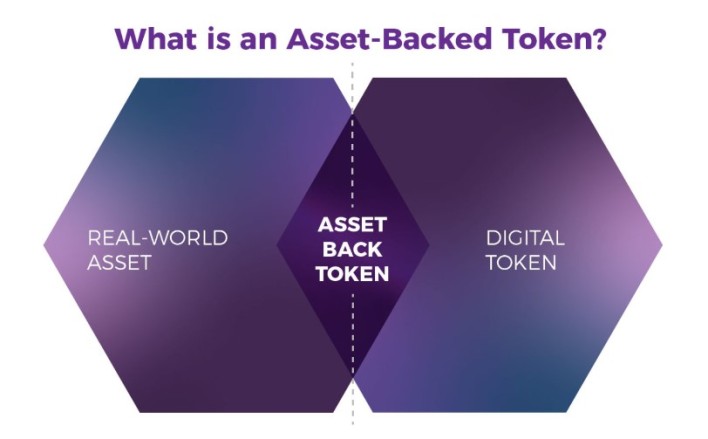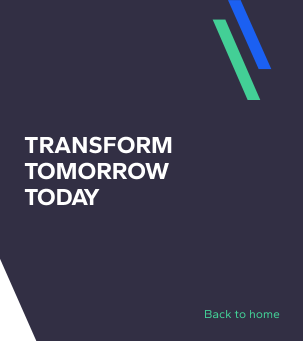Blog / Leadership & Transformation
Asset tokenization and the fiduciary challenge for developers who want to scale
Categories

Eelco Fiole, Ph.D, is an alumnus of Zigurat’s Master in Blockchain Technologies. In this article, he talks about the fiduciary challenges that appear when working on asset tokenization. He has over fifteen years of experience in fiduciary board-, COO, and CFO roles in blockchain and investments. He is also an entrepreneur, investor, and academic focusing on governance for sustainable and digital investment management.
Tokenization, the process in which any physical object, an intellectual work, a financial asset, or anything similar is given a digital value representation through an entry in a blockchain ledger, also known as token, is taking the world by storm. Every asset seems ready to be tokenized by a tokenizer, with all benefits we know. Investment opportunities for small and large investors, who gain access to assets, which were previously inaccessible, liquidity for trillions of dollars otherwise illiquid assets, and previously unvalued assets attracting capital, which otherwise would not. And as blockchain technology so far has shown: completely new business models will develop, and further opportunities will arise, as tokens can include programming against abuse and trade and settle easier and cheaper. Tokens can digitally represent the whole or part of an underlying asset and are sometimes expected to represent a percentage ownership position in that asset, with the value of the token fluctuating with the value of that underlying asset. It does not take much imagination to understand that the scale of tokenization can be endless.

For investors, tokenization is exciting: tokenization can offer investors opportunities to find the risk-return-impact combination they need for their portfolios. However, one of the many questions that remain is:
How can investors trust that the token is what it is sold for? Or that no unfair advantage is taken by the tokenizer of the investor or even that the tokenizer does justice to the interest of the investor?
To understand the issue a bit better, we can draw a parallel with investment funds. Investment funds are intangible legal products investors invest in and which are developed and managed by investment management companies. These firms are regulated, and often so are individual senior executives in those firms. Regulations typically target upholding market integrity and protecting investors. An investment fund, a legal entity in itself, invests in underlying listed or unlisted securities, equity, bonds, and others. The operation of the investment fund is well-described in legal documents that an investor accepts. All actors in the investment construct, e.g., the investment fund, the investment manager, and other service providers, legally act as fiduciaries and automatically accept a fiduciary duty to put the interest of the investor before their own interest. For a fee, of course.
As we know from Frankel², fiduciaries all share the following four attributes:
-They offer main services (in contrast to products). The services that fiduciaries offer are usually socially desirable and often require expertise.
-To perform these services effectively, fiduciaries must be entrusted with property or power.
-Entrustment poses to 'entrustors' the risk that the fiduciaries will not be trustworthy. They may misappropriate the entrusted property, misuse the entrusted power, or they will not perform the promised services adequately, and:
-There is a likelihood that (a) the entrustor will fail to protect itself from the risks involved in fiduciary relationships; (b) the markets may fail to protect entrustors from these risks, and (c) the costs for the fiduciaries of establishing their trustworthiness may be higher than their benefits from the relationships.
From this, it seems easy to recognize that tokenizers, like investment fund managers, fall in the realm of fiduciaries, and they are faced with fiduciary duties. Indeed, fiduciary duties can arise by contract, by statute, by status, or by acting as a fiduciary in the eyes of a beneficiary, the investor, or especially a court, and may not be disclaimed3. These duties are seen as above-market morals, of a special, enhanced nature, and based on principles, beyond minimum regulatory requirements. These duties typically have three elements: (1) duty of candor: a more extensive obligation exists to disclose information that the investor would consider relevant to the relationship, (2) duty of care: in which a fiduciary exercises care that a reasonable, prudent person would exercise, and (3) duty of loyalty: a fiduciary maintaining skill to perform well and diligent, always securing the best interest of the investor4.
In the case of tokenizers, who exactly would fall under these fiduciary duties?
Walch5 identified that a blockchain developer performs activities including making decisions about the policy choices to be embedded in the code, how to best technically manifest those choices, and then developing and reviewing the code to achieve those policy and technical choices. More to the point, Walch defines fiduciary developers as those who initially design and/or launch a system, those involved in decision-making around new releases of software, including policy and technical choices as well as code review, and those who make decisions about how to address a crisis faced by the system.
Implementing arrangements around fiduciary duties calls for governance
The systems and processes are concerned with ensuring the overall direction, effectiveness, supervision, and accountability of an organization, be it legal or otherwise. And while tokenization governance may not be the same arrangement as investment fund governance, it will need to ensure the investor interests are warranted and that the fiduciary duties of ecosystem participants are taken seriously.
As token markets develop positively, maybe not too much legal emphasis may be laid on this, but as losses and scandals inevitably happen, these fiduciary duties and legal liability stemming from them may become more pertinent. Of course, as Walch5 notes: treating blockchain developers as fiduciaries with accompanying legal liability would go against existing liability frameworks for software systems, which generally enables those who create software to disclaim liabilities for its flaws or harms it causes. These disclaimers, however, do not resolve the question of fiduciary duties. Maybe a solution proposed by Haque et al.6
“A framework similar to safe harbor provisions for data breach reporting may be the most appropriate model for a path forward. Under such a framework, developers may have a grace period to disclose the existence of bugs, and assuming they do not trade on the information to the detriment of network participants, they may not be held liable for keeping the bug secret”.
One would hope that developers would welcome the concept of accountability under the premise they would want to be seen as legitimate ecosystem participants, providing that unique, socially desirable service.
As tokenization scales around the globe, fiduciary duties are just but one reason to take governance design of a tokenization platform, including on-chain and off-chain procedures, DAO’s and offline entities, voting and tokenomics, and more, very serious from the start: after all, trust for adoption is easier to lose than to win.
References 2 Frankel, T. (2010) Fiduciary law. Oxford: Oxford University Press, p.6 3 Walch, A. (2019), ‘In code(rs) we trust: software developers as fiduciaries in public blockchains’, in Hacker, P., Lianos, I, Dimitropoulos, G. and Eich, S. (eds.) Regulating blockchain: techno-social and legal challenges, Oxford: Oxford University Press, pp.72-74 4 Boatright, J. (2014) Ethics in finance. 3rd ed. Chichester: John Wiley & Sons, p.261 5 Walch, A. (2019), ‘In code(rs) we trust: software developers as fiduciaries in public blockchains’, in Hacker, P., Lianos, I, Dimitropoulos, G. and Eich, S. (eds.) Regulating blockchain: techno-social and legal challenges, Oxford: Oxford University Press, pp.61-69 6 Haque, R., Seira, R., Plummer, B. and Rosario, N. (2020) ‘Blockchain development and fiduciary duty’, Stanford Journal of Blockchain Law & Policy 2(2), pp. 139- 188





